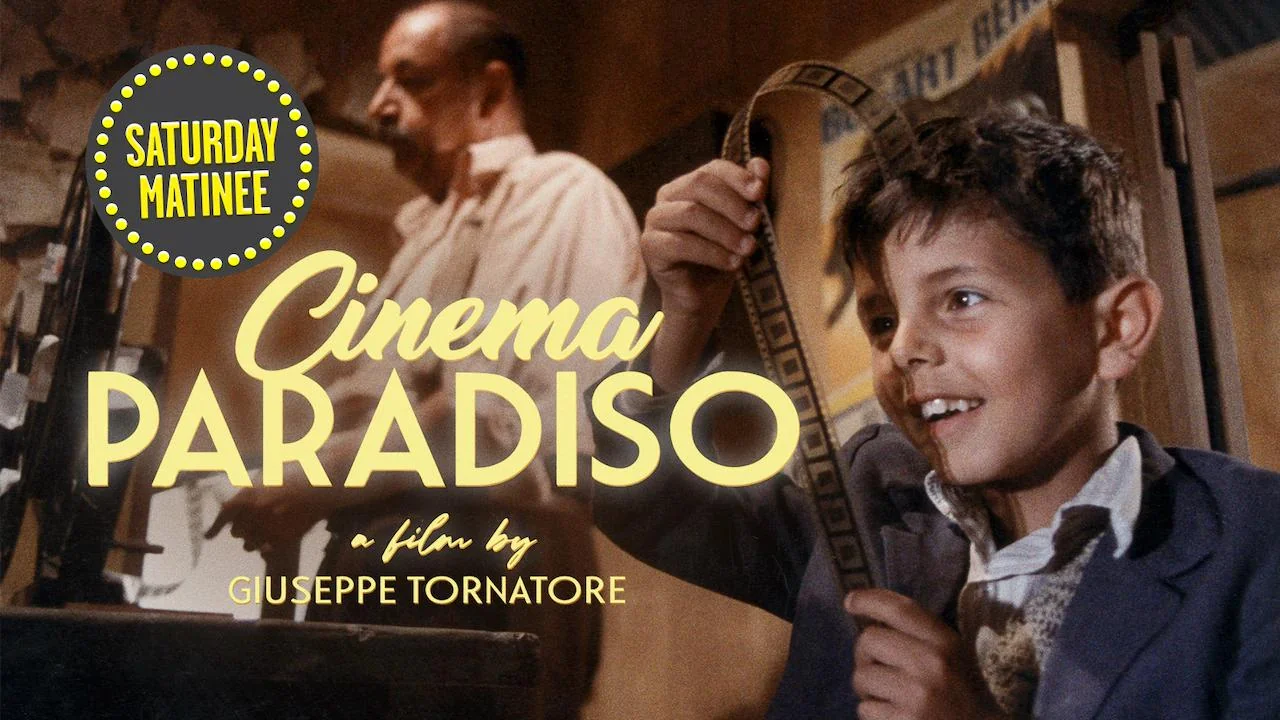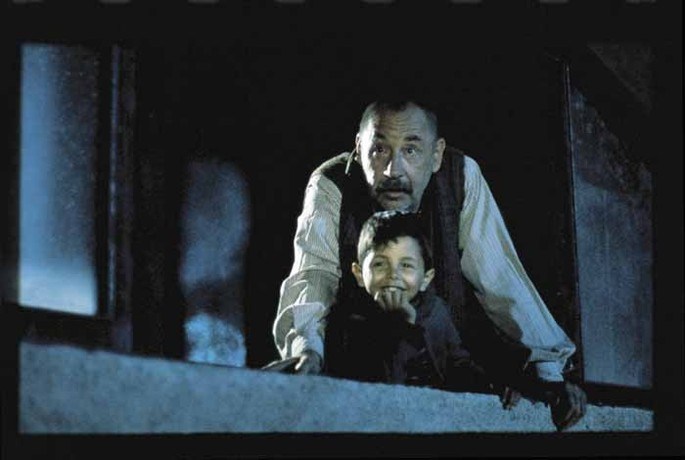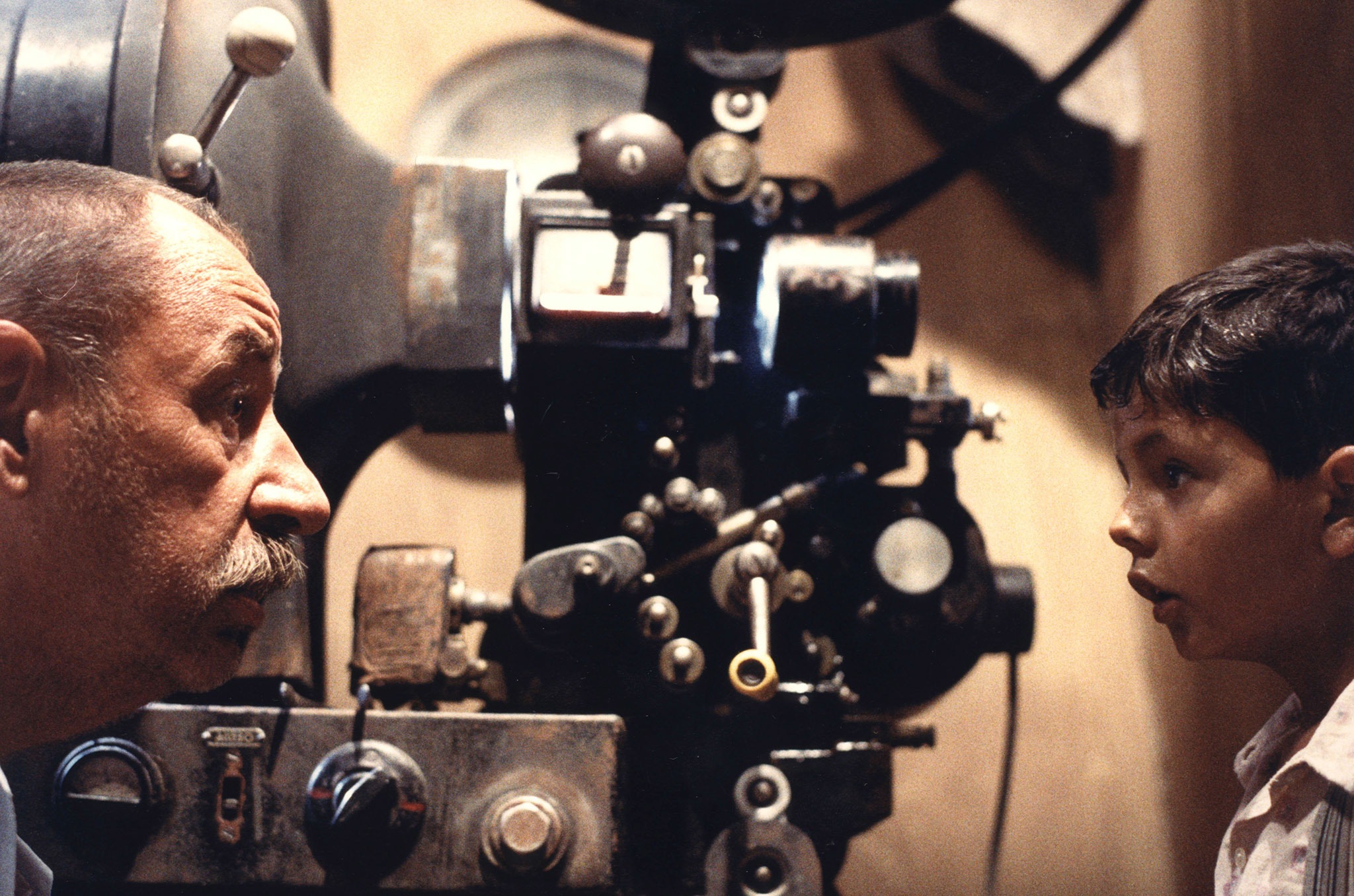Cinema Paradiso (1988)

“Cinema Paradiso” (1988) is a heartwarming coming-of-age comedy-drama film written and directed by Giuseppe Tornatore. Set in a small town in Sicily, the film tells the touching story of a young boy named Salvatore and his friendship with a retired projectionist, Alfredo. This beautiful tale of nostalgia, love, and cinema captures the profound influence of movies on a young person’s life. The film received widespread acclaim and won several awards, including the Academy Award for Best Foreign Language Film.
The story of “Cinema Paradiso” revolves around Salvatore, a young boy who becomes enchanted with films after spending time at the local movie theater, the Cinema Paradiso. Alfredo, the elderly projectionist, becomes his mentor, teaching him about the magic of cinema and guiding him through the challenges of growing up. As Salvatore matures, he develops a deep love for filmmaking, which eventually leads him to leave his small town and pursue a career as a director. The film beautifully intertwines Salvatore’s memories of childhood with his return to the town as an adult, where he reflects on his past and his relationship with Alfredo, whose mentorship had a lasting impact on his life.
The film features remarkable performances that breathe life into its deeply emotional narrative. Salvatore, portrayed by both Marco Leonardi (as the young boy) and Philippe Noiret (as the adult), is a character whose growth and emotional journey are central to the story. Noiret, as Alfredo, gives a masterful performance as a wise, kind-hearted projectionist who imparts his love for cinema to Salvatore. Their bond, built on shared moments in the projection booth and their mutual love for movies, is at the heart of the film. The supporting characters, including Salvatore’s family and the townspeople, add further depth to the community atmosphere and help convey the film’s themes of love, loss, and the passage of time.
“Cinema Paradiso” explores several powerful themes, with the most prominent being the power of cinema itself. The film celebrates the magic and emotional impact that movies have on people, offering both escapism and a reflection of life. It also delves into the theme of friendship, particularly the bond between Salvatore and Alfredo, which transcends age and circumstance. The film portrays the bittersweet nature of growing up, capturing the innocence of childhood and the inevitability of change. Ultimately, “Cinema Paradiso” is a love letter to cinema, showcasing how movies can shape our lives and memories in profound ways.

Giuseppe Tornatore’s direction in “Cinema Paradiso” is both nostalgic and poetic. He masterfully blends humor and drama, creating a film that resonates with audiences of all ages. Tornatore’s ability to evoke emotion is evident in the way he portrays the town’s love for cinema and the relationships that evolve over time. The cinematography by Blasco Giurato enhances the film’s nostalgic atmosphere, with beautifully composed shots that reflect the warmth and charm of the Sicilian countryside. The use of light and color is especially striking, with the projection room and the images on the cinema screen serving as powerful symbols of Salvatore’s connection to the world of film.

The music in “Cinema Paradiso” plays a crucial role in enhancing the emotional depth of the film. The iconic score, composed by Ennio Morricone, is both sweeping and tender, perfectly complementing the film’s themes of nostalgia and love. The music builds a deep emotional connection between the audience and the characters, especially in key moments of the film where the visuals and score work in harmony to convey the film’s poignant messages. The soundtrack elevates the storytelling, making it an unforgettable cinematic experience that lingers long after the credits roll.

“Cinema Paradiso” is a timeless masterpiece that celebrates the art of filmmaking, friendship, and the beauty of life’s fleeting moments. Through its heartfelt performances, evocative direction, and unforgettable music, the film captures the magic of cinema and its ability to shape our memories. Tornatore’s film is a poignant exploration of growing up, loss, and the enduring influence of mentors. “Cinema Paradiso” is a film that not only speaks to movie lovers but also to anyone who has experienced the bittersweet journey of growing up and looking back at the people and moments that shaped their lives.











